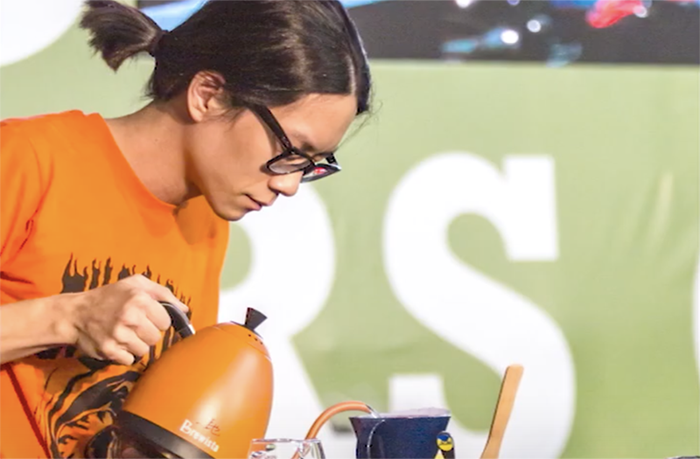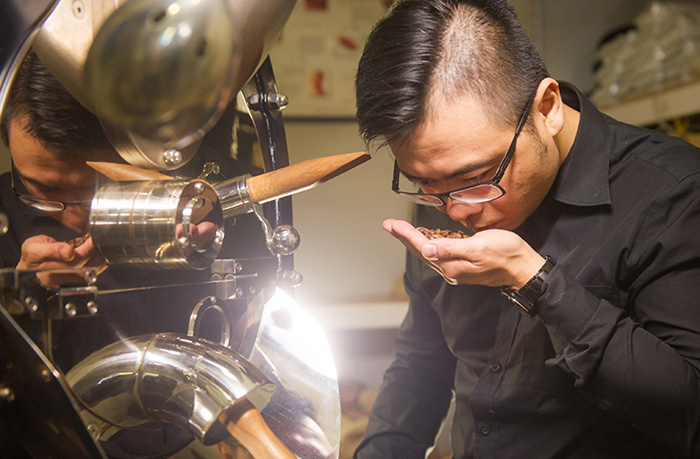Tea as an industry has been around for hundreds of years in Taiwan. Many coffee farmers come from families of tea farmers. Their familiarity with tea production provides them with unique insights into coffee processing. For instance, since tea production requires fermentation as well, coffee farmers who have backgrounds in tea production are keenly aware of how to use fermentation to increase coffee quality.
Grafting is a major practice in coffee production in Taiwan. Its main purpose is in varietal update. Farmers who wish to replace their coffee varietals to those with better flavor profiles (like Geisha) face the problem of physiological and quality inconsistencies when they plant seeds anew. Using existing and healthy plants as seedling stocks, farmers could graft scions with preferred flavors to achieve fast and consistent production. Grafting could shorten the time till harvest by 1-2 years.
In Taiwan, one can order specialty coffee from convenience stores, which according to a 2019 survey sold 13 cups of coffee per second at a density of 0.33 stores per kilometer squared. On top of this, the extremely high density of roasteries also means consumers have many options all within easy access.
Taiwan also boasts one of the highest coffee champion per capita, having secured the championship title in four major global coffee competitions

Lupin Liu - 2014 World Cup Tasters Champion

Jacky Lai - 2014 World Coffee Roasting Champion

Berg Wu - 2016 World Barista Champio

Chad Wang - 2017 World Brewers Cup Championship
A large percentage of coffee farmers in Taiwan are members of the indigenous tribes of Taiwan. To them, coffee is more than just a business. It is also a replacement crop for areca palms that caused environmental dangers in the past. Planting, harvesting, and evaluating coffee have created job opportunities that help retain the population of the tribal lands and sustain the local industries.